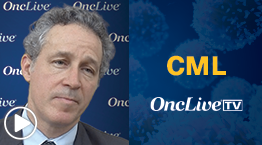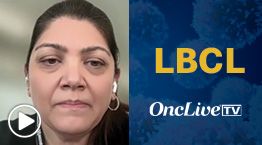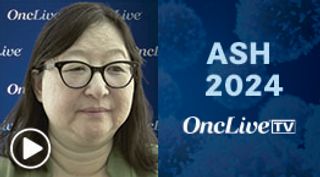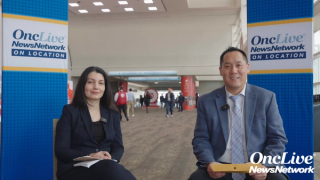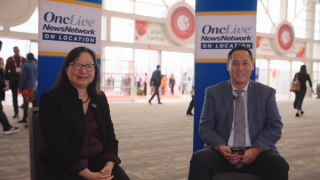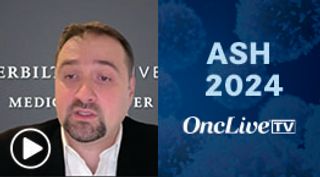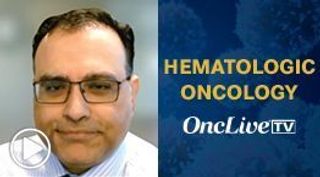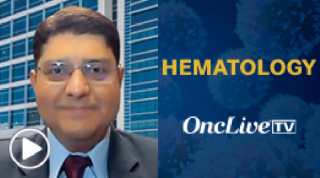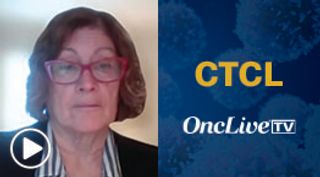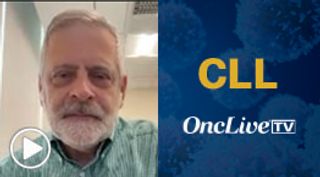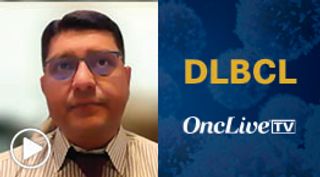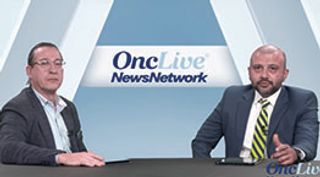
Hematologic Oncology
Latest News
Latest Videos

CME Content
More News

The FDA has received an NDA for ziftomenib in relapsed/refractory NMP1-mutant acute myeloid leukemia.

The top 5 OncLive videos of the week cover insights in multiple myeloma, AL amyloidosis, ovarian cancer, prostate cancer, breast cancer, and follicular lymphoma.
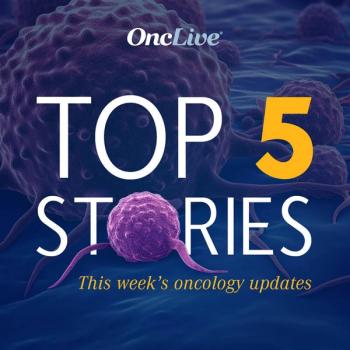
Orca-T boosts cGVHD-free survival in hematologic malignancies, cilta-cel continues to impress in CARTITUDE-4, and more.
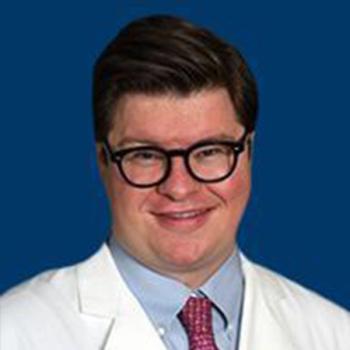
James K. McCloskey II, MD, discusses the advantages of the oral formulation of decitabine plus cedazuridine for patients with MDS and CMML.

A small sample size from an analysis of the FELIX trial suggests consolidative SCT may not be needed after obe-cel treatment in relapsed/refractory B-ALL.

OncologyLive was onsite at the 2024 ASH Annual Meeting to film a Peer Exchange featuring expert commentary on follicular lymphoma.
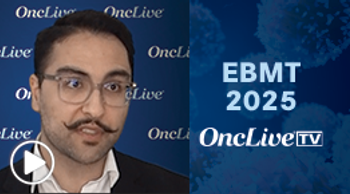
Kiavasch Mohammad Nejad Farid, MD, discusses the efficacy of MDC-CAR-BCMA001 in relapsed/refractory multiple myeloma and systemic light chain (AL) amyloidosis.

Real-world data with axi-cel, tisa-cel, and brexu-cel in patients with B-cell malignancies proved comparable to other experiences with cellular therapy.

Tabelecleucel generated high response rates and favorable OS in patients with EBV-positive PTLD who had progressed on prior standard-of-care approaches.
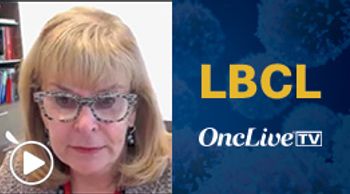
Julie M. Vose, MD, MBA, discusses the optimal use of epcoritamab for select patients with relapsed/refractory large B-cell lymphoma.

Pacritinib was active and safe in patients with multi-refractory chronic graft-vs-host disease.

Axi-cel led to higher response rates but increased toxicity vs tisa-cel in older patients with relapsed/refractory DLBCL.

A consistent ORR was shown with axatilimab after second-line therapy, regardless of prior lines of therapy, in patients with steroid-refractory cGVHD.

Infections occur early after CAR T-cell therapy administration in patients with relapsed/refractory NHL.

Orca-T improved moderate-to-severe cGVHD–free survival vs conventional allogenic transplant in advanced hematologic malignancies.

Obe-cel showed higher response rates and longer survival vs non–CAR T therapies in adults with R/R B-ALL.

The addition of inotuzumab ozogamicin to bridging therapy led to high objective response rates and sustained survival in obe-cel recipients with B-cell ALL.

A donor-derived CAR T-cell therapy produced complete remissions, but survival was limited in relapsed/refractory T-cell lymphoma.

Stable disease was common in patients with CD123-positive, relapsed/refractory acute myeloid leukemia who were treated with AFM28.
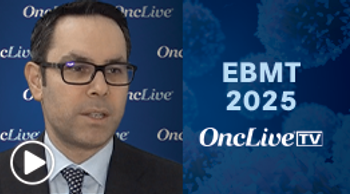
Ioannis Politikos, MD, discusses data from a study which compared the immune reconstitution profiles of Orca-T with those from CD34 allograft recipients.

TDI01, a selective ROCK2 inhibitor, generated responses and clinical benefit in patients with cGVHD.

Acimtamig plus AlloNK was associated with high objective response rates in heavily pretreated patients with relapsed/refractory Hodgkin lymphoma.

A comparative analysis showed that apraglutide plus ruxolitinib improved response rates vs ruxolitinib monotherapy in steroid-refractory GI aGVHD.

Orca-T was associated with a retrospective survival improvement vs post-transplant cyclophosphamide in advanced hematologic malignancies.

Orca-T led to lower rates of EBV and CMV reactivation vs CD34 engraftment in patients with select hematologic malignancies.



